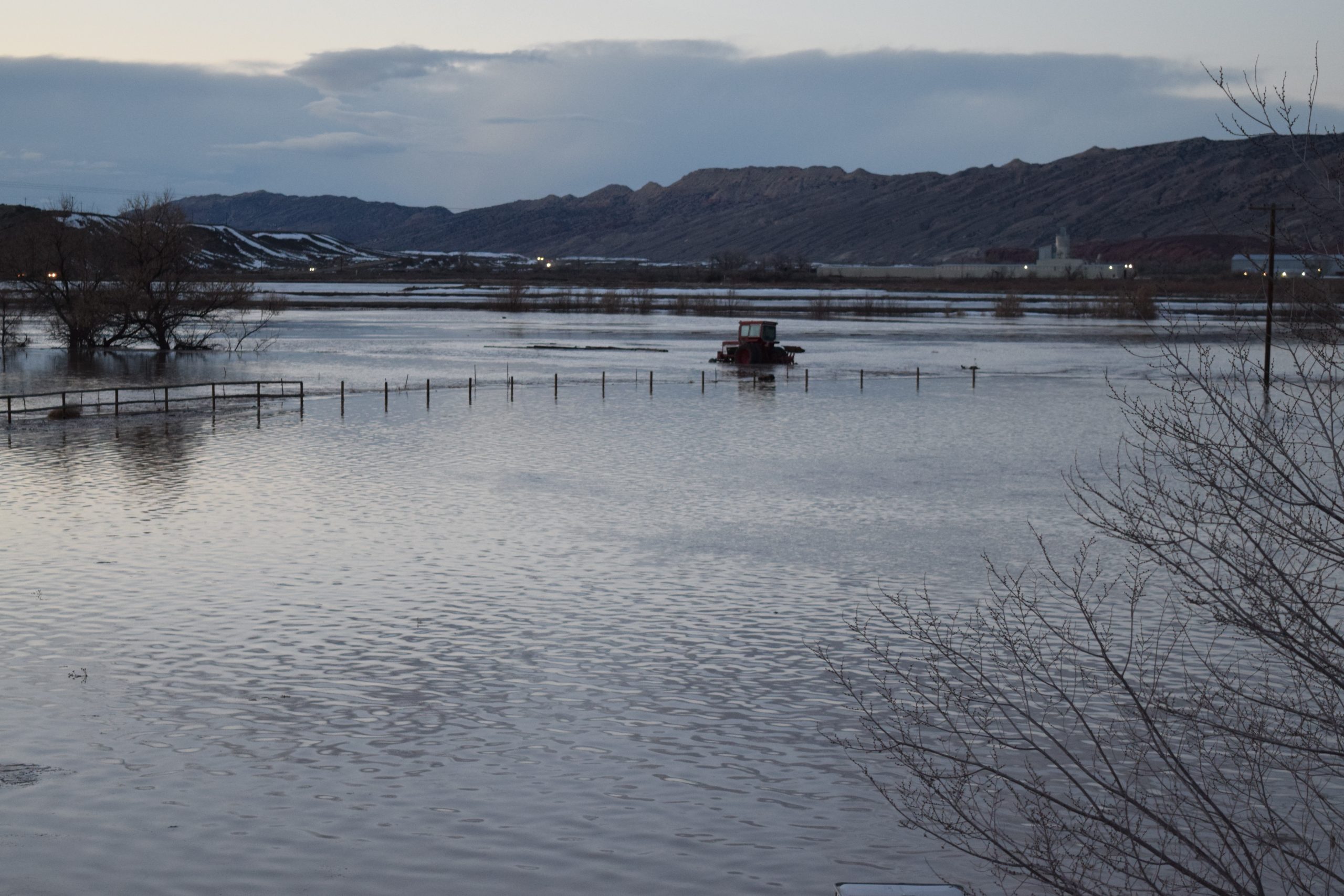Table of Contents
Living in the West takes grit at the best of times. Between the weather, the wildlife, and work, life can feel stressful, lonely, or frustrating.
Out in rural areas, sometimes it seems like the only tool that’s available to deal with stress is “cowboying up” and muscling through. But that doesn’t have to be the only solution. There are other tools that can make it easier to deal with stress and other issues.
Stress is the result of everything you’re dealing with day to day. Getting to the root of the issue means reaching out to others. If you’re planting a field, you can get a lot done with your own two hands if you work hard, but it’s a lot easier with a tractor and some friends.
The first step of addressing a problem is figuring out what the problem looks like. Understanding common signs of stress can help you know when and how to look for help.
Common signs of stress
Stress shows up in different ways for each person. Some people might feel irritable all the time and have difficulty controlling their anger. Others might feel worried constantly. Still others might feel numb, like the stress is just too much.
Any of these feelings can make it difficult to participate in activities you used to enjoy or cause you to withdraw from friends and family.
These feelings are a normal part of life. But, “just because it’s normal doesn’t mean you have to feel that way. Even if it is normal, you might still want to make it different,” says Grace Shearrer, assistant professor in the University of Wyoming Department of Family and Consumer Sciences.

Signs of stress could include:
- Irritability or anger
- Excessive worrying
- Withdrawing from people and activities you used to enjoy
- Neglecting responsibilities or spending less time on them
- Problems with sleeping or eating
- Suddenly losing or gaining a lot of weight
- Difficulty concentrating or making decisions
- Acting unusually aggressive, critical, or negative
- Multiple physical ailments without obvious causes (such as headaches, stomachaches, or vague and ongoing aches and pains)
Stress often builds up, getting worse and worse until it causes a breakdown. It’s less expensive to change your car’s oil every once in a while rather than waiting for the engine to blow. If you notice that you or someone you care about seems to be experiencing any of the above symptoms, it might be time to reach out to the people you know or look for some additional help. You may be able to find support in your family, faith, friends, pets, coworkers, or medical professionals.
Signs of extreme stress
Sometimes, people can experience even more extreme symptoms. These might include thinking about death or hurting themself, or frequently thinking that things would be better if they weren’t around.
Signs of extreme stress could include:
- Inability to carry out daily activities

Addressing stress early can prevent a bigger problem later on. Photo by bymandesigns, stock.adobe.com. - Major, sudden changes in physical appearance
- Extreme mood changes, including uncontrollable “highs” or feelings of euphoria
- Not taking medicine as prescribed, or hoarding medicine
- Increased use of drugs or alcohol
- Thinking about death or suicide frequently
- Looking for ways to hurt yourself
- Talking about suicide or hurting yourself
- Making last arrangements or giving away possessions
- Making a plan to kill yourself
- Memory loss
- Slow or fidgety body movements
- Confused thinking or problems concentrating and learning
- Difficulty perceiving or believing reality
- Inability to perceive changes in your own feelings, behavior, or personality
You are important, and important things take time and teamwork. If you are experiencing the above symptoms, it’s time to take action. Talk to someone. If you feel like you don’t have someone you want to talk to, call one of the numbers below or reach out to your primary care provider.
Resources for crisis situations

988 Suicide & Crisis Lifeline: The lifeline provides 24-hour confidential support to anyone in suicidal crisis or emotional distress, particularly for rural populations. Call or text 988 to connect with a trained crisis counselor. Support is also available via live chat.
Disaster Distress Hotline: People affected by any disaster or tragedy can call this helpline to receive immediate counseling. Call 1-800-985-5990 to connect with a trained professional from the closest crisis counseling center within the network.
Veterans Crisis Line: This helpline is a free, confidential resource for veterans of all ages and circumstances. Call 1-800-273-8255, press “1”; text 838255; or chat online to connect with 24/7 support.
Crisis Text Line: Text HELLO to 741741 for free and confidential support 24 hours a day throughout the U.S.
National suicide prevention hotline: Talk to someone who can help 24/7 at
1-800-237-8255.
Ways to help people around you
If you are worried about someone, take time to listen to them. You don’t have to have answers or solve the problems they’re facing. For now, let them know you care about them and you are there for them.

Listen to the person carefully. Try to clarify if you don’t know what they mean, or re-state what you thought they said. Summarize any facts you both agree on. Stay calm, and don’t take it personally if they’re agitated or lash out. Avoid any judgments or negative comments. Remind them that you care about them.
If you are concerned that the person seems suicidal, ask directly if they’re thinking about killing themself. This isn’t easy to do, but researchers have found that asking doesn’t increase suicidal thoughts—in fact, it can decrease these thoughts.
If they acknowledge that they are thinking about killing themself, ask if they have a plan. Remind them that there are resources to help them and that you are there to help them get the support they need.
Let them know that sharing their feelings with you means they are ready to get additional help. Work with the person—or with others—to make it more difficult or impossible for them to access lethal items. This might include throwing away any old or unnecessary medications or asking them to let you hold on to their firearms in your gun safe until they feel better.
If you think someone is in immediate danger, such as if they become agitated or have a detailed plan to kill themself, stay with them and seek emergency help. You can always take someone to an emergency room or call the Suicide and Crisis Lifeline (988).
Stay connected and follow up with the person after talking to them. Continuing to reach out is one of the best ways you can help someone experiencing extreme stress.
Find the strength to speak up
The West is an amazing place to live, but it isn’t always easy. Though sometimes it can feel like an overreaction, reaching out for help is better than letting the problem fester. Stress almost never gets better on its own. Instead, it gets worse, causing more and more issues until it can lead to a crisis. Even “minor” symptoms like increased irritability can be a sign that a huge issue is brewing.
Use that Wyoming grit to do the hard job of looking out for yourself. Building connections with the people around you and talking about your experiences isn’t simple, but it’s worth doing.
“Your knowledge is important,” says Shearrer. “Tell a new employee, a grandchild, anybody—talking to anyone will help, even if it’s just the younger fella at the Silver Spur. You’re an important person who has contributions to give.”
Additional resources
For information about stress and how to cope with it, visit https://www.agrisafe.org/healthcare/mental-health/ or https://namiwyoming.com/.
If you are looking for a counselor or substance abuse treatment in Wyoming, visit the AgriStress Provider Directory or https://health.wyo.gov/behavioralhealth/mhsa/treatment/.
The National Alliance on Mental Illness (NAMI) offers peer-led support groups that bring together people dealing with stress. Visit https://namiwyoming.com to learn more.
https://agwell.org/wyoming-resources/ collects general resources for stress, medical concerns or injuries, or financial stress.
https://healthynatrona.crediblemind.com/ offers assessment tools, tools to cope with stress, and educational resources.
For help navigating these resources, call (307) 638-5519 or toll free (888) 857-1942 to contact a Wyoming ombudsman.





